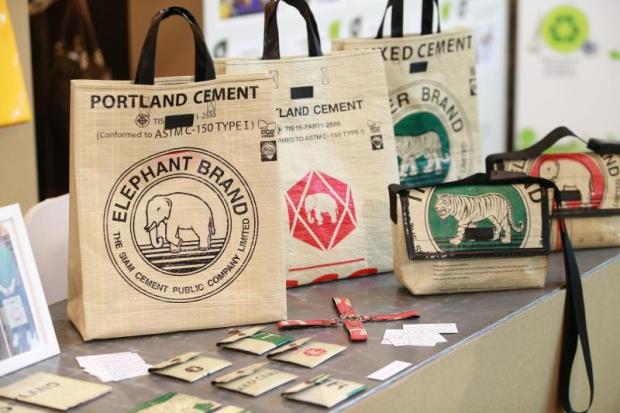
SET-listed Siam Cement Plc (SCG), Thailand's largest cement maker, has set aside an annual budget of 6 billion baht for R&D and innovation projects to further the company's sustainable growth.
SCG adopted sustainability strategies in this annual budget to comply with Thai government regulations, and with hopes its business partners realise being sustainable makes long-term economic sense.
Yesterday, SCG held a global forum on the sustainability development in Thailand titled "SD Symposium 2018" under the concept of circular economy. Many government agencies, private companies and startups joined the symposium to share their success stories to collaboratively drive the circular economy.
Cholanat Yanaranop, chairman of SCG's sustainable development committee, said the company's strategy focuses on reducing raw materials, durable operations plants, upgrading technology and replacing existing products by creating new innovations.
SCG will offer higher efficiency for reused and recycled products, instead of seeking new resources.
"SCG is confident that these strategies will see positive responses from benefits to society and the environment," he said.
"The circular economy concept can solve many problems of dwindling natural resources by creating systems; for example, by reintroducing waste into supply chains, leading to environmental and social sustainability."
Roongrote Rangsiyopash, SCG's president and chief executive, said the company wants to collaborate with other parties on sustainable growth.
SCG has promoted its sustainable plan to work together with many parties at home and overseas to build a complete circular economy.
"SCG's technology partner Dow Thailand Group is using recycled plastic as an ingredient in asphalt, which helps reduce waste and enhances efficiency while reducing carbon emissions from constructing roads," he said.
The Marine and Coastal Resources Department said Thailand ranks sixth out of 192 countries in plastic ocean debris. Thailand has 11.5 million tonnes of waste in the country's 23 coastal provinces, with more than 1.5 million tonnes of plastics.
SCG and Dow are working together to provide a valuable end-of-life solution to plastic waste.
Recently, Dow has teamed up with India and Indonesia to turn recycled plastic into asphalt roads. In India, more than 100 tonnes of plastic were converted to roads running 40 kilometres in the cities of Pune and Bangalore.
In Indonesia's Depok, plastic waste was turned into reclaimed land from the ocean, where roads were built.
Peter Bakker, president and chief executive of World Business Council for Sustainable Development (WBCSD), said the circular economy concept is an innovative concept that defies traditional manufacturing and consumption behaviours.
Asean is a challenging region because it still in process of driving developments, upgrading the quality of living and acting as a key manufacturing hub catering to rising demand. This results in a shortage of resources, he said.
According to WBCSD, successful implementation of the circular economy concept can promote the manufacturing of products and services using innovation that maximises the efficiency of resources used.